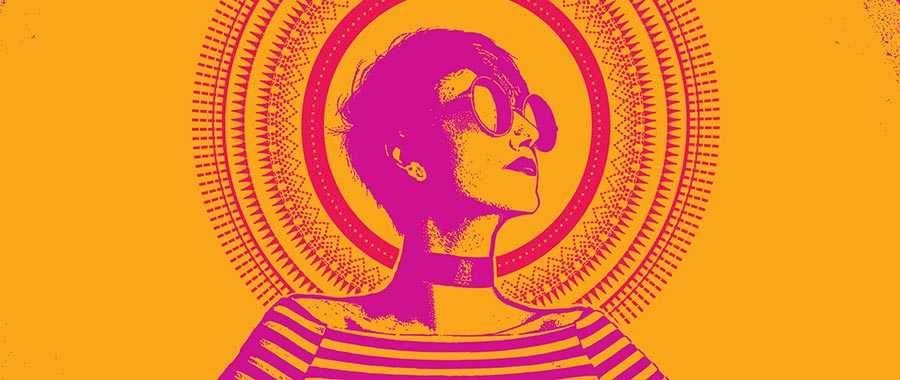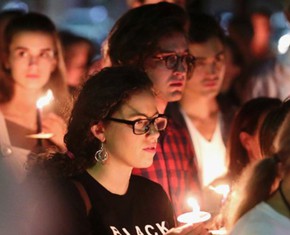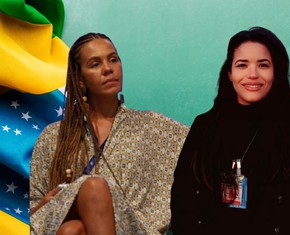The views expressed in our content reflect individual perspectives and do not represent the authoritative views of the Baha'i Faith.
She waited prayerfully and meditatively, knowing that her death was imminent. They strangled her with her own scarf. Her name was Tahirih, and she was slain for her beliefs in 1852.
The Baha’i teachings say Tahirih was the first martyr for women’s suffrage:
Thus ended the life of this great Babi heroine, the first woman suffrage martyr, who, at her death, turning to the one in whose custody she had been placed, had boldly declared: “You can kill me as soon as you like, but you cannot stop the emancipation of women.” – Shoghi Effendi, God Passes By, p. 74.
Reading her story for the first time years ago, I could almost hear the fearless certitude in her voice. She spoke truth. Reading her words and hearing her strong voice in my mind, I finally knew, with the same sense of inner certainty, that the Baha’i Faith held something I had been searching for all of my life: recognition of the absolute equality of women and men.
As has happened with other women, the recent headlines that launched the #metoo and #timesup movements ripped open some old, long-buried wounds inflicted long before I ever heard of Tahirih and the Baha’i Faith.
I was a young newspaper reporter looking for a break. He was a muckity-muck human resources director for a big, well-respected newspaper chain.
I got the job. He kept tabs on me, calling me at work, calling me at home, questioning how I was doing on the job. Then he started questioning my whereabouts when I wasn’t home to take his calls.
The questions became hostile. Then the threats came. If I didn’t do what he wanted, I’d be fired. I’d never work again.
It was terrifying to report this to my immediate supervisors. There was an investigation. He got a letter in his permanent record. I was ordered into mandatory counseling.
I was even more scared when I saw the therapist. On a good day, I’m naturally soft-spoken. This wasn’t a good day.
The therapist asked if he could sit closer because he had trouble hearing me. I said yes and tearfully stumbled through the story.
His “professional” assessment? He claimed that I’d deliberately spoken softly because I wanted him to move close enough that I could seduce him. What?!?!
He laughed at me as I walked out the door in anger. I cussed. A lot.
I moved on to another newspaper; a better one that prided itself on its commitment to diversity in the workplace and opportunities for women. I moved up to become an award-winning journalist.
Eventually, my life’s journey led me to the Baha’i Faith. In it, I found healing reassurance. The equality of women and men is one of the core principles in the Baha’i teachings.
So when those old wounds were aggravated by recent headlines, I reached again for the balm of truth that healed me long ago:
Baha’u’llah declares the absolute equality of the sexes. … Verily, they are equal before God, for so he created them. Why should woman be deprived of exercising the fullest opportunities offered by life? Whosoever serves humanity most is nearest God—for God is no respecter of gender. The male and female are like the two wings of a bird and when both wings are reinforced with the same impulse the bird of humanity will be enabled to soar heaven-ward to the summit of progress. – Abdu’l-Baha, Divine Philosophy, p. 82.
Women have equal rights with men upon earth; in religion and society … As long as women are prevented from attaining their highest possibilities, so long will men be unable to achieve the greatness which might be theirs. – Abdu’l-Baha, Paris Talks, p. 133.
God hath created all humankind in His own image, and after His own likeness. That is, men and women alike are the revealers of His names and attributes, and from the spiritual viewpoint there is no difference between them. – Abdu’l-Baha, Selections from the Writings of Abdu’l-Baha, p. 79.
To this day, I never tire of reading the story of Tahirih, not just about her death, but about her life and the pivotal role she played in establishing the independence of this new global religion—and the independence of women. I am inspired by how she stood up to the clergy and other officials of her day who regarded women only slightly above animals. She delivered eloquent arguments for equality with such power that her truth could not be denied. I gain strength from “her fearlessness, her skill, her organizing ability and her unquenchable enthusiasm,” as Shoghi Effendi so aptly credited her, and I marvel at her intuition about the inevitable progress of my gender, which bordered on prophetic.
As I witness woman after woman stepping forward to combat the social injustices that have victimized women for centuries, I am thrilled to know that Tahirih’s words ring as true today as ever, “you cannot stop the emancipation of women.”
















Comments
Sign in or create an account
Continue with Googleor